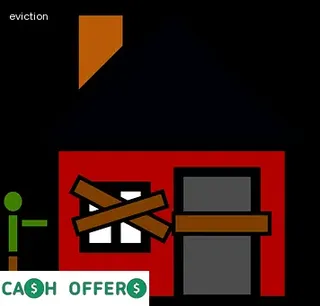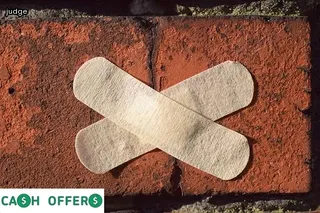Evicting a tenant in New York is not always easy. It is important for landlords and property managers to understand what causes can lead to an eviction in order to properly assess the situation and avoid potential legal issues down the line.
Common reasons for evicting a tenant include non-payment of rent, breaking lease terms, causing damage to the property, or engaging in illegal activity on the premises. Landlords may also be able to evict tenants who have been living in the rental unit beyond their lease term if they are not paying rent or have violated other terms of the lease agreement.
In addition, it is possible to evict tenants who have been disruptive or noisy and affect other tenants’ enjoyment of their rental units. Regardless of the reason for eviction, it is important that landlords and property managers comply with all applicable laws when initiating an eviction process in New York.

Navigating the eviction process in New York can be a daunting task, especially for landlords and property managers who are unfamiliar with the legal requirements. In order to legally evict a tenant, the landlord must first give a written notice that complies with state law.
This notice typically includes the amount of rent owed, how long the tenant has to pay it before being evicted, and what will happen if they don’t pay. If the tenant does not comply with this notice, the landlord may then file an eviction action in court.
When filing for eviction in New York, there is a specific set of rules and regulations that must be followed – from serving papers to appearing in court – which vary from county to county. Landlords must also provide tenants with certain documents such as a copy of their lease agreement and an “Answer” form.
It is important for landlords and property managers to understand all legal requirements for eviction before beginning this process so they can protect their rights as well as those of their tenants.
Navigating the eviction process in New York can be a daunting task for landlords and property managers, but understanding the timeline of the process is essential. It typically begins with a landlord or property manager serving an eviction notice to the tenant, allowing them either three days or 30 days to vacate depending on the violation.
Once that time period has passed, if the tenant is still on the premises, then the landlord must file a petition with the local court. If accepted, a hearing will be scheduled for both parties to present their cases before a judge who will make a ruling.
The tenant may receive an order to vacate or be allowed additional time with certain conditions attached. In some cases, tenants may appeal any court decision made against them and request a stay of execution until their appeal has been heard.
Ultimately, it is up to both parties to ensure that all steps are followed correctly in order for an eviction order to be successfully enforced.

Evicting a tenant in New York City can be an expensive process, both financially and emotionally. The cost of evicting a tenant depends on various factors such as the complexity of the case, the amount of time it takes to handle paperwork, and if there is a need to hire court personnel or an attorney.
While some landlords may handle eviction proceedings themselves, they are encouraged to consult with an attorney who specializes in landlord-tenant law before proceeding. A successful eviction requires that all procedures and paperwork must be handled correctly and in accordance with New York State law.
On average, a landlord can expect to pay between $500-$2,500 for legal fees associated with filing an eviction notice in New York City. This does not include any other costs such as court appearances or repairs for damages caused by the tenant.
In addition to legal costs, a landlord should also consider potential lost rental income if the tenant has vacated before their lease agreement has ended. Furthermore, landlords and property managers should also be aware that evictions can take anywhere from 2-6 months to complete depending on the complexity of each case.
Navigating the eviction process in New York can be daunting, and if you're a landlord or property manager it's important to know your rights and understand the process.
Common questions about evictions in New York include how they are initiated, what forms need to be filed with the court, what is necessary for the tenant to do after the papers are served, and how long an eviction takes.
It's also important to understand what constitutes cause for an eviction, who is responsible for paying court costs, and whether or not a tenant has any recourse for challenging your request for eviction.
Knowing the answers to these questions can help landlords and property managers navigate this difficult process in order to ensure a successful outcome.

When it comes to eviction, the rules and regulations vary from state to state. In New York, the eviction process is governed by the landlord-tenant laws of the Real Property Law and the General Obligations Law.
These laws are designed to protect tenants from unfair treatment and ensure that landlords can collect rent in a timely manner. While some of these laws are similar across states, there are also differences that property managers and landlords need to be aware of when navigating an eviction process in New York.
For example, compared to other states, New York has more specific rules regarding how much notice must be given before beginning an eviction action. Furthermore, because of the various tenant protections in place in New York, it is important for landlords to understand their rights and obligations when initiating or responding to an eviction situation.
Understanding all aspects of eviction law is critical for both tenants and landlords so they can work together effectively within the framework of the law.
The process of legally evicting someone in the US can take a considerable amount of time and it is important for landlords and property managers to be aware of this in order to navigate the eviction process in New York. The length of time largely depends on state laws, as well as whether or not the tenant contests the eviction.
Generally, in most states, including New York, an eviction notice must be served to the tenant that includes an explanation of why they are being evicted and how much time they have left before they are required to leave the property. After this initial notice has been served, if the tenant does not comply with it then the landlord must file an official legal complaint through their local court system.
From here, a judge will review all evidence and determine if an eviction is necessary. If so, a court order will be issued to formally remove the tenant from the property.
This entire process can range anywhere from several days to several weeks depending on how quickly all paperwork is filed with the court and how quickly a judge makes a decision. Therefore, landlords and property managers should plan ahead when preparing for legal evictions as it requires careful planning to ensure that all procedures are followed properly.

Evicting a tenant in New York City is not a fast process and can take an extended length of time to complete. After the landlord or property manager has served the tenant with an appropriate notice, the tenant is provided with 30 days to vacate the premises if they are behind on rent, or 10 days for other violations.
However, if the tenant does not comply within this time period, then the landlord must file court documents that will be reviewed by a judge. This process can take anywhere from 1-2 months depending on how quickly a hearing date can be scheduled, and ultimately how long it takes for the judge to make their decision.
The amount of time it takes to issue a judgement may also depend on whether or not there are any appeals filed following the initial ruling. Additionally, once a judgement is issued, tenants may still have an additional 10 days to vacate before the sheriff arrives to remove them from the property.
Navigating an eviction process in New York can be a complicated and stressful experience for landlords and property managers. It is important to understand the laws and forms associated with evicting a tenant in New York so that the process can go as smoothly as possible.
In order to begin an eviction, a landlord must provide a written notice to the tenant informing them of the reason for eviction. If the tenant does not respond or comply with the notice, then the landlord can take legal action by filing an eviction petition with the court.
The court will review any documents submitted by both parties and will issue a judgement which may include an order for tenants to vacate their residence. It is essential for landlords to be familiar with all relevant state and local regulations about evictions in order to ensure compliance throughout the eviction process.
Landlords should also consult accurate legal forms such as summonses, complaint forms, notices of petitions, affidavits, and other documents that must be filed with their local court house when beginning an eviction. Understanding these laws and forms is crucial in navigating through New York's eviction process successfully.

Evictions with cause in New York require a landlord or property manager to give the tenant written notice of the eviction, which must include the reason for the eviction, the amount of time they have to move out, and instruction on how to dispute it. The notice must be served by either handing it directly to the tenant or by affixing it to the dwelling in a conspicuous place.
If a landlord is unable to effectuate service of process, then an order of eviction can be obtained from an appropriate court. In most cases, if a tenant does not receive proper written notice, they may remain in possession until such notice is provided, and could potentially contest the eviction in court.
It's important that landlords and property managers understand their obligations when serving a notice of eviction with cause in New York so that they are properly prepared and can avoid any potential legal complications.
Navigating the eviction process in New York can be daunting for landlords and property managers. Knowing the timeline of an eviction case is key to understanding the complexities of this process. Depending on the circumstances, an eviction case in NY may take anywhere from two to six weeks.
Before filing a petition with the court, a notice must first be served on tenants informing them of their landlord’s intent to evict. The type of notice issued will determine how long it takes before a landlord can file a petition with court. If tenants fail to comply after receiving a three-day or ten-day notice, then landlords can immediately file a petition with court and move forward with the eviction process.
However, if tenants are given a thirty-day notice and do not comply within that time frame, then landlords must wait until those thirty days are up before proceeding to court. Once the petition is filed, there will be a hearing date set which typically occurs within two weeks; however this timeline can vary depending on court backlogs and other related issues. After the hearing date has been set, if tenants still have not vacated the premises by that time, then landlords must apply for a warrant of eviction before they can proceed with actually removing tenants from their property.
Even once all paperwork has been filled out correctly and submitted, applying for a warrant of eviction in NY may still take several more weeks before it is granted by the court system. Taking all these steps into account it is clear why calculating the duration of an eviction case in NY is so important for landlords and property managers looking to successfully navigate through this process.

Navigating the eviction process in New York can be complicated and confusing, especially for landlords or property managers who are unfamiliar with the state's laws. The delays and appeals that tenants can make during the eviction process can be especially daunting, as they may prolong a landlord's pursuit of an eviction.
In order to avoid these issues, it is important to understand what actions can cause delays and how to legally respond when faced with an appeal from a tenant. For starters, landlords should know that tenants have up to 20 days to answer a summons for an eviction, and if they do not do so then the court will usually enter a "default" judgement.
Furthermore, tenants may also challenge an eviction by filing a motion to dismiss within those 20 days. If this happens it will generally require both parties to appear in court and could add weeks or months onto the timeline of the eviction procedure.
Additionally, tenants may have other legal grounds on which they can challenge an eviction such as retaliatory evictions or discrimination claims. Landlords must always remember that all evictions must follow due process and any violation of it could result in additional delays or even legal repercussions.
It is ultimately important for landlords and property managers to understand their rights and obligations when navigating the NY eviction process in order to ensure that it is handled efficiently without running into costly problems along the way.
In New York, when a landlord initiates an eviction process, called an Unlawful Detainer Action, tenants may be able to use a hardship defense. This defense allows them to ask the court for more time to pay rent or vacate the property.
Such defenses are extremely useful when tenants are not able to comply with their original agreement due to certain circumstances such as loss of job or income, medical emergency, natural disaster, among others. In some cases, if a judge is convinced that the tenant has a valid case, they may grant additional time before any further action can be taken.
Landlords and property managers should be aware of these hardship defenses and understand how they can affect the eviction process in New York. Furthermore, they should also make sure that all rental agreements are up-to-date and well documented in order to protect themselves in the event of an Unlawful Detainer Action being filed against them.

When a landlord is unable to remove a tenant through self-help measures, they must proceed with the eviction process according to New York law. The most common cause of an eviction is when a tenant fails to pay rent on time, but other violations of the lease agreement can also result in an eviction.
It's important for landlords and property managers to be aware of their rights and responsibilities in order to navigate this process with confidence. Property owners must serve their tenants with appropriate notices specifying why they are being evicted, along with instructions on how the tenant can respond or contest the eviction.
In New York State, it's unlawful for a landlord to lock out or shut off utilities to force tenants out, so they must go through the court system in order to gain possession of their rental units. Landlords may file a summons and complaint in civil court as part of this process, after which the judge will decide if an eviction should take place.
If successful, the landlord will receive a judgment granting them permission to have their unit vacated by law enforcement officers if need be. Throughout this process, it's essential that landlords remain compliant with all local requirements and regulations regarding evictions in New York.
When a landlord or property manager in New York begins the eviction process, it is important to be aware of the obligations both parties have during an eviction lawsuit. A landlord must follow all applicable laws and regulations as well as provide written notice to the tenant with a specified amount of time before any legal action can be taken.
Tenants, on the other hand, should ensure they are current on all rent payments and take any necessary steps to protect their rights. If a tenant fails to appear in court or pay back rent, the landlord may be able to obtain a default judgment that gives them permission to evict the tenant.
Additionally, landlords must comply with any orders issued by the court during an eviction lawsuit such as providing relocation assistance for tenants who are legally evicted. It is important for both parties involved in an eviction case to understand their obligations so that the process can proceed fairly and with minimal conflict.
The eviction process in New York can be lengthy, and it is important for landlords and property managers to understand the timeline of events. In the majority of cases, an eviction in New York takes anywhere from 45-90 days.
This timeline can vary depending on a variety of factors including how quickly paperwork is completed, how many court hearings are necessary, and how long it takes for the tenant to vacate the premises. It is also important to note that if a tenant files an appeal or requests a stay of eviction, then the timeline can be extended significantly.
Landlords and property managers should always strive to be proactive when navigating the eviction process in New York as this will help ensure that all deadlines are met and that the entire process goes as smoothly as possible.

In New York, a landlord or property manager must provide tenants with at least thirty days after an eviction notice is issued. This allows the tenant time to rectify any problems that may have led to the eviction before the landlord can file for legal action.
It is important for landlords and property managers to understand their rights and responsibilities during this process. In addition, understanding the laws regarding evictions in New York is essential in ensuring that all parties adhere to their obligations under the law.
Knowing how much time a tenant has to respond to an eviction notice is key in navigating the eviction process in New York, as it serves as a safeguard for both tenants and landlords alike.
In New York, landlords must give tenants a 30-day notice before initiating any eviction proceedings. However, the amount of time a tenant has to move out is dependent on the type of eviction being initiated.
For instance, if a landlord is evicting a tenant for nonpayment of rent, the tenant has 20 days from receiving the notice to vacate the premises. On the other hand, if a landlord is evicting a tenant for some other reason, such as violating lease terms or committing an illegal act on the property, then they need to provide tenants with 30 days’ notice before beginning eviction proceedings.
In addition, state law requires that landlords must give their tenants at least one full month’s rent before filing for an eviction in court. It is important for landlords and property managers to understand how much time they are required to give tenants to move out in order to avoid costly fines and complications with their eviction proceedings.
In New York, the rules for eviction are complex and vary from county to county. Under state law, landlords and property managers must provide tenants with certain notices before an eviction can take place.
Notices must be served in accordance with the Real Property Law and the Civil Practice Law and Rules. If a tenant fails to pay rent, landlords or property managers can serve a notice of non-payment of rent which gives the tenant three days to pay the past due amount or vacate the premises.
If a tenant does not comply within three days, then a landlord or property manager can file a summons and complaint with the local court. The court will then arrange a hearing date where both sides can present their case.
In some cases, the court may allow a tenant additional time to cure any breach of lease agreement prior to an eviction being finalized. Landlords should be aware that any violation of state laws during an eviction process could result in serious legal consequences for them as well as their tenants.